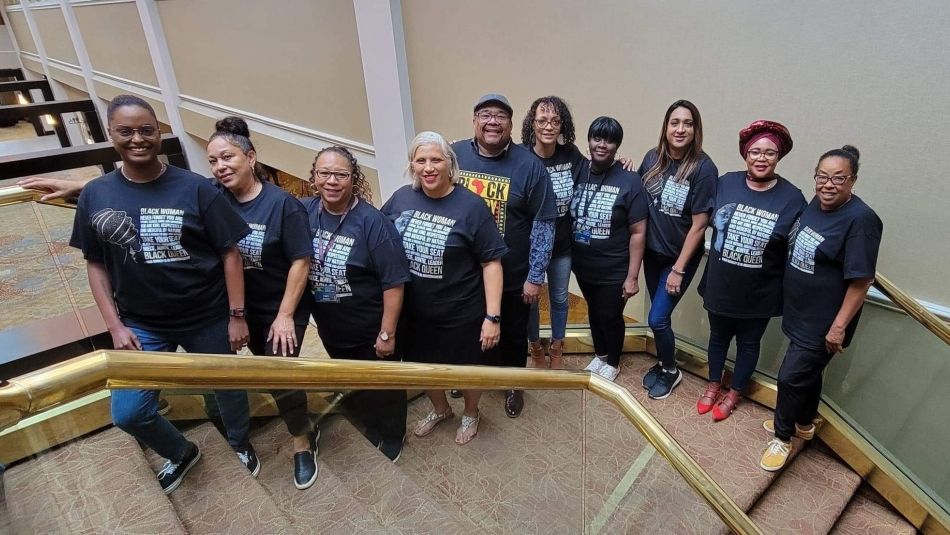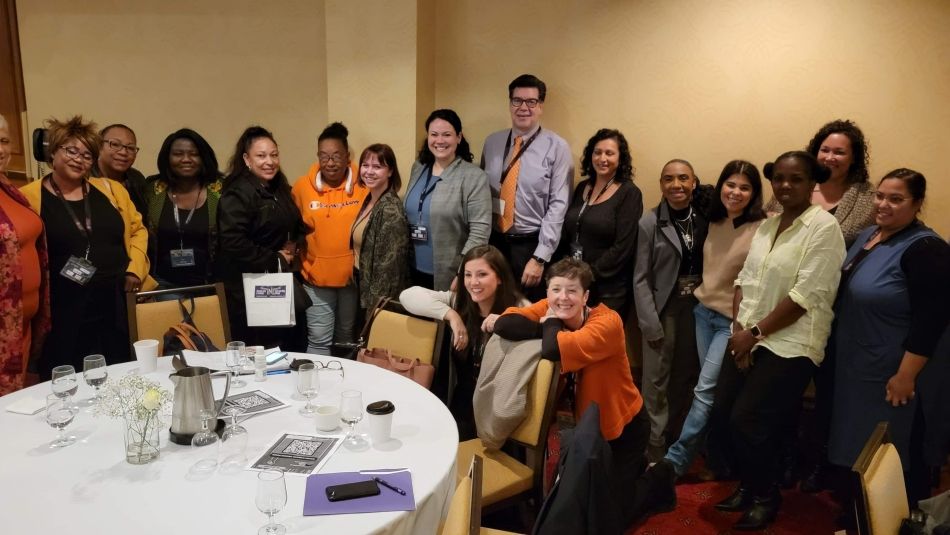
Share
Unifor members attended the inaugural International Black Health Conference in Halifax, N.S. to discuss strategies for improving access to health care in Black communities across Canada.
The conference – from Oct. 6 to 8, 2022 – is the first in Canada. Its main goal is to create better health outcomes across Black communities, inform clinical practice, initiate policy change, and showcase achievements and promising practices, which will be documented in a report available to the public in early 2023.
"The International Black Health Conference was ground-breaking and empowering, and the knowledge and support was overwhelming," said Ayan Holland, the unit chairperson of Local 2458 and who works at Extendicare Southwood Lakes long-term care home in Windsor, Ont.
“It is an experience I will carry on for the rest of my life.”
Professors, researchers, students, clinicians, health policymakers, community organizations, government officials, and diverse Black communities in Canada and globally came together for this conference.
The conference focused on collective power, bringing people from all institutions and perspectives together to address the growing health gaps in diverse communities.
There were table talk discussions on many different areas, including gender-based violence, housing, employment, immigration, child welfare, environment, youth, and what is needed to bridge the gaps between mental health and Black health supports for Black communities.
“What I took away from health conference was how far we have come in regards to education, but still have to work twice as hard to get our voices heard when it come to our own health and well-being,” said Angela Downey from Local 4606, who is a health care worker at Shannex Parkstone Enhanced Care in Halifax, N.S.
“A lack of race-based data renders our Black experiences as invalid. If we are not counted, we don’t count.”
The 11 Unifor members, among 500 delegates, had an opportunity to share their stories, ideas and solutions during the weekend.
Among the Unifor attendees included Holland and Downey, Emily Glowick from Local 1106, Natalie Trubbie from Local 504 and Christine James, Leanne Saunders, Hellen Sabit and Phyllis Bennett – all from Local 4606.
These Unifor members represented the healthcare sector well and brought their experience and recommendations to every session, said Unifor Human Rights Director Christine Maclin. Employer IWK Hospital also attended, which was vital, because it allowed them to see the union was present and demanding changes.
Keynote speaker Jonathan Metzl, a professor of Sociology and Psychiatry at Vanderbilt University in Nashville, Tenn., told delegates that when there is an intersection of race and mental health, it alters the way communities are diagnosed, the types of treatments provided, changes to supports, the increase of misdiagnoses and contributes to who is incarcerated versus who gets supports.
"Institutions like health care, policing, and judicial systems would bring in people who were part of the Civil Rights Movement and the Women’s Movement and misdiagnose many of them,” said Maclin.
“These types of false narratives still contribute to people not wanting to seek out resources. And that is even whether there are adequate resources available or accessible in communities.”
Maclin said to build good health for everyone, the union must continue to participate in real solutions to close all gaps. Unifor locals and committees can connect with regional Black, Indigenous and Workers of Colour committees and support all actions through the union’s Health Care Council that supports all health care workers.



